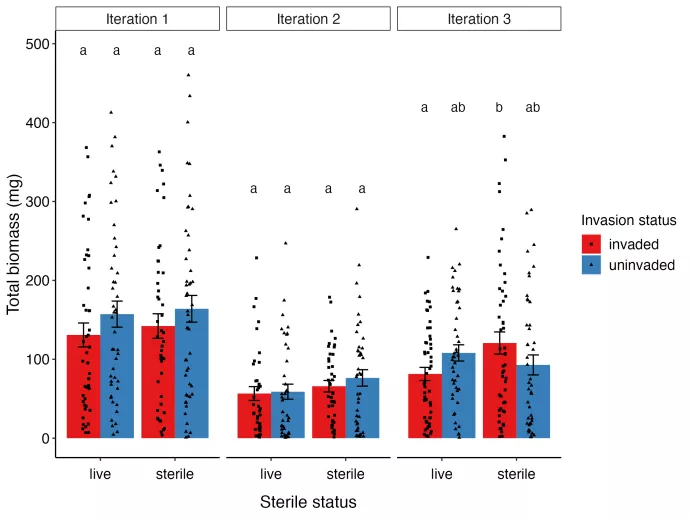
Vicki Zhang's First Authored Paper on the Development of negative soil feedback by an invasive plant near the northern limit of its invaded range
Vicki Zhang, PhD student, from Kotanen Lab published her first 1st authored paper: “Development of negative soil feedback by an invasive plant near the northern limit of its invaded range” in Plant Ecology
https://doi.org/10.1007/s11258-023-01330-4
Invasions at high latitudes are recognized as an emerging threat to native biodiversity, but non-native plants remain scarce in northern Canada. One factor potentially inhibiting further invasions may be below-ground interactions; in particular, it is unclear whether interactions with soil biota are likely to help or hinder the spread of new species into often challenging northern soils. In the Canadian subarctic, the non-native plant Linaria vulgaris has invaded human-disturbed soils in the town of Churchill, Manitoba (58.8°N) but for decades has failed to spread into natural communities. One explanation for this stasis might be greater resistance by soil communities in uninvaded areas relative to areas where this plant is established; however, no local evidence for plant-soil feedbacks exists. In one of the first papers to test the potential role of plant-soil feedbacks in an invasion at high latitudes, we planted L. vulgaris in soil serially inoculated with live and sterilized field-collected soil sampled from invaded or uninvaded sites, and measured plant performance over three iterations. There was no initial difference in performance between inoculation treatments in the first two iterations. However, by iteration 3, we found that sterilization significantly increased L. vulgaris biomass in invaded soils, indicating feedback becomes negative in invaded soils compared to uninvaded soils. Soil chemistry did not differ significantly between invaded and uninvaded soils, though there was a tendency for invaded soils to contain more carbon and nitrogen. These results do not support the hypothesis that L. vulgaris is absent from uncolonized sites because soil communities resist invasion. Instead, they provide evidence that L. vulgaris is inhibited by plant-soil feedbacks in invaded soils, while feedbacks in native-dominated soils are not a barrier to further local spread. Thus, explanations for the restriction of this species must lie elsewhere.
Vicki is a PhD Candidate in the Kotanen Lab, investigating the factors influencing spread of non-native species in the subarctic. At high latitudes, invasions are relatively uncommon, but Churchill, Manitoba, may be a hotspot for future invasions. Here, over a hundred non-native species have been found in human-disturbed areas, but none have spread into the natural tundra and boreal forest. For her PhD, she studies how anthropogenic factors, such as climate warming, disturbance, soil movement, and human-mediated dispersal influences the spread of several non-native species in Churchill. Apart from research, she teaches a 3rd year statistics course for EEB students, and an Arctic Ecology field course. She is also an instructor with Data Carpentries, and serves on the Biology Grads Student Society (BGSS) and the UofTCoders Exec Team. Outside of grad school, she likes to stay active through long-distance running and paddling with a dragon boat team, and she reads a lot in her downtime.

